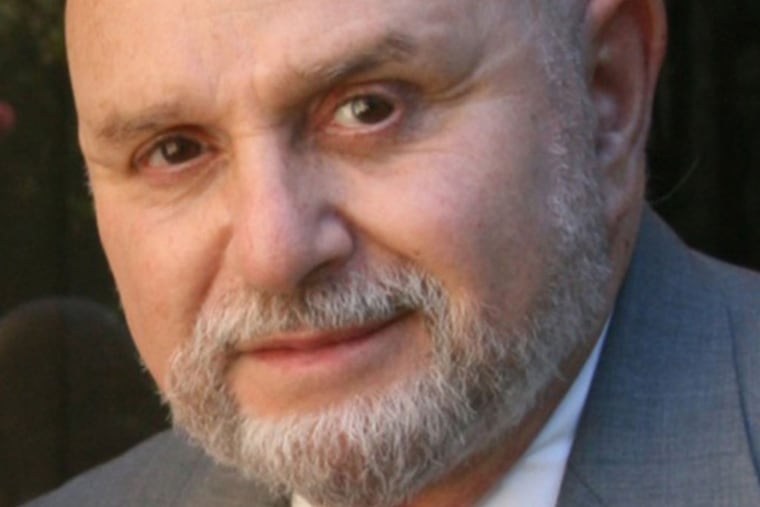Joel J. Nobel, 79, patient-safety advocate
Joel J. Nobel, 79, of Gladwyne, a physician who pioneered the patient-safety movement and, in a colleague's words, "made hospitals safer for everybody," died Wednesday, Aug. 13, at his home from complications of cancer and diabetes.

Joel J. Nobel, 79, of Gladwyne, a physician who pioneered the patient-safety movement and, in a colleague's words, "made hospitals safer for everybody," died Wednesday, Aug. 13, at his home from complications of cancer and diabetes.
Dr. Nobel was a resident surgeon at Presbyterian Hospital in 1968 when a 4-year-old patient died because a hospital defibrillator malfunctioned. Dr. Nobel had alerted administrators several times that week that the device was not working.
That tragedy changed him, and society.
"Anger," he wrote, "is a great source of energy."
On his own, Dr. Nobel set up an evaluation of 18 manual resuscitators, and found nine to be ineffective; their manufacturers took them off the market. In 1968, he set up the Emergency Care Research Institute, and when he could find no one to publish his findings, he did it himself in the Health Devices Journal, which he created and which became the medical-technology equivalent of Consumer Reports.
His mantra: "Does it work? Is it safe? Is it reliable?"
"He decided he could do more good designing and evaluating equipment than as a single physician," said his son, Joshua.
Dr. Nobel dedicated himself to what became known as the ECRI Institute, working there until his death. Now with 400 employees, based in Plymouth Meeting but with offices around the world, ECRI also expanded into other areas of patient safety, collecting data on hospital errors and reviewing clinical trials.
Hospitals worldwide use ECRI research data to decide what medical equipment to buy and how much to spend on it, which best practices and new procedures to implement, and which clinical trials are effective.
Elliot Sloane, head of the Center for Healthcare Information, Research, and Policy and a lifelong friend, recalled him as "a remarkable mixture of physician and engineer and innovator, and absolutely committed to the nonprofit public good."
Dr. Nobel would not accept any funding from manufacturers of medical devices and technologies or pharmaceutical firms, and insisted that everyone in his organization abide by rigorous conflict-of-interest standards. Every employee's tax return went to ECRI's chief financial officer for review.
"I described him as a modern-day samurai," Sloane said, "because he really took the battle very personally and honorably. He did not see wealth or power as the outcome. He had his own code of honor that really focused on a greater good. He was steadfast to the very end."
Anthony J. Montagnolo, ECRI's chief operating officer, is 50 but still recalls a conversation with Dr. Nobel on his first day on the job, at age 21: "He told me, 'Your first responsibility isn't to your supervisor or to me, but to do what's best for patients.'
"Joel made hospitals a safer place for everybody."
Dr. Nobel grew up in Philadelphia and graduated from Friends Select School in 1952. He received a bachelor's degree in English from Haverford College in 1956, a master's in international relations from the University of Pennsylvania in 1958, and a medical degree from Jefferson Medical College in 1963.
He interrupted a neurosurgical residency during the Vietnam War to serve on a Navy submarine.
An avid sailor, he headed the sailing team at Haverford. He was also qualified as a pilot in more than 14 types of land and sea aircraft. In his younger days, he was especially fond of flying aerobatics in a World War II-era training biplane.
Dr. Nobel and his son shared a hobby of meticulously restoring World War II vehicles, rebuilding engines, gun mounts, and transmissions. They often participated in Memorial Day and Fourth of July parades.
In addition to his son, Dr. Nobel is survived by his wife, Qingqing Lu Nobel; daughter Erika; son Adam; a brother; a sister; and a granddaughter.
Services were private.
Memorial donations may be made to the American Diabetes Association.
215-854-5639 @MichaelVitez